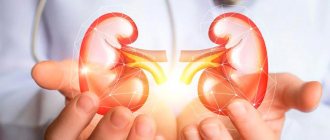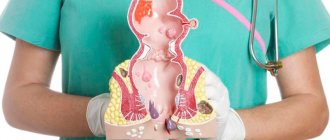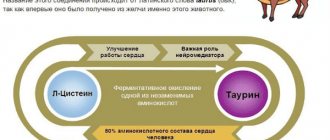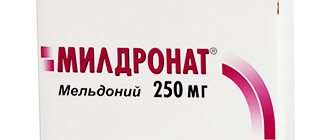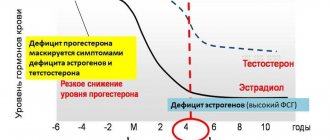Cardiology is a medical science that deals with the prevention, detection, treatment of heart diseases and the circulatory system as a whole. A cardiologist is a doctor who specializes in this area and also works to restore heart function that is impaired due to diseases of other internal organs. The specialist’s task is to promptly detect and eliminate risk factors for cardiovascular pathologies, prevent their occurrence, select the necessary treatment and monitor the condition of patients who have had a heart attack or cardiac surgery.
The history of cardiology goes back hundreds of years. Hippocrates also described the heart as a muscular organ with ventricles and large vessels. And Leonardo da Vinci created many illustrations in which heart valves were clearly visible. If at the beginning of the 19th century doctors were looking for ways to study cardiac and vascular pathologies, now cardiology is aimed at their safe treatment and prevention.
In what cases should you urgently contact a cardiologist?
The insidiousness of many heart and blood vessel diseases lies in their asymptomatic onset. Feeling constant fatigue, often suffering from sore throats, and periodically experiencing mild suffocation, people attribute the malaise to stress, lack of sleep, and intoxication. However, later the symptoms become more pronounced, interfering with everyday life and adjusting plans. You should immediately make an appointment with a cardiologist if you complain of:
- tingling in the heart area;
- aching pain syndrome, a feeling of heaviness on the left side of the chest;
- discomfort in the area of the left shoulder blade and upper limb;
- unstable heartbeat;
- acute pain syndrome behind the sternum;
- shortness of breath when walking and other physical activity;
- pulse less than 50 or more than 90 beats per minute;
- swelling of the lower extremities;
- numbness of part of the face, arms or legs, pain in the calves when walking;
- attacks of throbbing headaches;
- imbalance;
- changes in blood pressure;
- periodic dizziness.
There is no need to self-medicate or mindlessly take medications recommended by a neighbor or relative. It is important to quickly identify the problem and prevent it from taking root in the body.
An important reason to visit
An unfavorable family history
of cardiac disease (if there is a lot of heart or blood pressure problems in the family) may be a good reason to visit a cardiologist at an early stage, starting in adolescence or early adulthood. It is especially important to take care of your heart if a first-degree relative (mom or dad, siblings) died prematurely, suddenly due to heart disease, or one or both of your parents was diagnosed with any type of heart disease. In our genes we transmit information not only about external signs, but also about a tendency to certain diseases. It is important to know whether your parents, siblings, or grandparents died of heart disease, at what age this occurred, and what complications they experienced during their lifetime. Many (though not all) heart diseases can be hereditary.
Risk group: who needs cardiologist supervision
Preventative visits to a cardiologist are necessary even for young people under 35 years of age who do not have health problems. To control the situation, one visit every 2 years is enough. Men and women over 40 years of age should come for a consultation with a specialist once a year. From this age, the course of some chronic diseases worsens, heart ailments appear, and the risk of stroke or heart attack increases significantly.
The cardiac risk group includes people suffering from:
- diabetes mellitus;
- obesity;
- renal failure;
- pulmonary diseases.
Every six months, people whose close relatives have suffered from severe heart and vascular diseases, who have suffered a hypertensive crisis, myocardial infarction, stroke and other acute conditions should come for examination and diagnosis.
Please note! If you smoke, drink alcohol frequently, eat poorly, exercise little, or become very fat, be sure to make an appointment with a cardiologist for prevention, as you are at risk.
Appointment with a cardiologist at the Endovascular Surgery Clinic
Not every municipal cardiology hospital or clinic has modern equipment to conduct a full examination. The solution for those who do not want to wait in line for months and care about their health is to contact the Endovascular Surgery Clinic. The clinic has the latest diagnostic equipment and employs doctors who have been trained in Russia and abroad.
At the Endovascular Surgery Clinic, cardiologists conduct appointments by appointment. You can make an appointment for a consultation by calling the number provided or filling out a special form on the website. You also have the opportunity to see a cardiologist online by following this link.
How is the initial appointment and diagnosis carried out?
No special preparation is required to see a cardiologist. It is enough to take with you your medical history and examination results for the last six months. The scope of the initial consultation includes:
- Anamnesis collection . The specialist finds out what symptoms bother the patient, when they occur (for example, after physical activity, at night), whether there have been problems with the cardiovascular system in the past, whether there are bad habits, allergic reactions.
- Examination of the patient . The doctor examines the skin, mucous membranes of the mouth and eyes, which makes it possible to identify possible circulatory disorders (for example, blueness of the lips, tip of the nose), and the chest area (visible deformation occurs in heart pathologies).
- Palpation . Tissues in the heart area are palpated, and the intensity and amplitude of contractions of the heart muscle are determined.
- Percussion . The organs located in the chest area (lungs, heart, large blood vessels) are tapped and their sizes are determined.
- Auscultation . The sounds of the heart and blood vessels and heart rate are listened to using a phonendoscope.
To obtain a complete clinical picture, an ECG (electrocardiography) is performed. 3 pairs of electrodes are placed on the skin in the heart area and 2 more pairs on the forearms and ankles. The device then records the electrical activity of the heart and displays it in the form of an electrocardiogram.
Important! When going to the cardiologist, wear comfortable underwear so that the doctor can diagnose and you do not feel discomfort.
Cholesterol
Cholesterol is a substance that circulates in our body, is deposited on the walls of blood vessels and interferes with normal blood flow in them. Atherosclerotic plaques form on the walls of blood vessels. You need to know your cholesterol level in order to prevent it from rising above the norm, and therefore to prevent the risk of developing diseases of the cardiovascular system.
The norm for total cholesterol is 5.0 mm/l.
To keep cholesterol normal, you need to follow dietary recommendations. There is a special lipid-lowering diet, which refers to “bad foods” that interfere with the functioning of the heart
Lipid-lowering diet for people with high blood cholesterol
Recommended Products Not recommended products Cereals: whole grain bread, brown bread, rye bread, oatmeal bread, all types of grain products/flour, pasta, corn flakes/, barley, rice, oats, rye Cereals: wheat bread, croissants, whipped dough products Milk and dairy products: milk up to 0.9-1.0% fat, low-fat cheese/ fresh cow's milk cheese/, egg white, low-fat fermented milk products Milk: whole milk, cream, full-fat cheeses, egg yolk, whipped cream Soups: low-fat meat and vegetable soups, fish soups Soups: cream soup, thick soups, broths Fish and seafood: white fish/especially sea fish/ Fish and seafood: caviar, shrimp, crabs, squid, octopus Meat and meat products: chicken / without skin /, turkey, lean beef, veal, lamb Meat and meat products: fatty meat, especially pork and lamb, salami, sausages, frankfurters, bacon Fats: olive, sunflower or corn oil Fats: butter, lard, lard, margarines Vegetables: all boiled and stewed, including boiled potatoes Vegetables: any fried vegetables, French fries, chips Fruits: apples, cherries, cherries, apricots, peaches, pears, plums, oranges, grapefruit, tangerines, lemon, strawberries, raspberries, blackberries, currants, grapes Fruits and nuts: avocado, prunes, raisins, hazelnuts, almonds, walnuts Confectionery: puddings, fruit cakes, vegetarian buns, cookies Confectionery: pastries, cakes, pancakes, donuts, pies Drinks: all types of juices prepared without sugar, unsweetened tea, instant coffee Drinks: all types of juices with added sugar, all types of soft drinks with sugar, alcohol, chocolate drinks Spices: salt, herbs, pepper, mustard Spices: mayonnaise, ketchup
Cholesterol level - less than 5.0 mm/l
Treatment methods and follow-up
Depending on the identified disease, the doctor applies a specific treatment regimen:
- a diet with a limited menu of fats, simple carbohydrates, and salt;
- moderate physical activity (race walking, swimming, breathing exercises, etc.);
- morning walks in the fresh air;
- compliance with the work and rest schedule (sleep at least 8 hours);
- rejection of bad habits;
- taking medications;
- physiotherapy.
A set of exercises must be developed (each disease has its own exercise plan), which strengthens the heart muscle, increases blood flow and lowers cholesterol levels.
Dynamic monitoring of patients is required for chronic pathologies: coronary artery disease, hypertension, heart rhythm disturbances, heart failure, etc. The frequency of examinations depends on the nature of the lesions. If a patient has suffered a myocardial infarction or heart surgery, he should visit a cardiologist 2-4 times a month for the first 6 months. If the condition is stable, 2-4 consultations per year are sufficient.
At each regular visit, a standard examination is performed with heart sounds, palpation, blood pressure measurement, and a comprehensive examination is prescribed to assess the course of the disease over time. An ECG and a general blood and urine test are required. Based on the results of the examination, the cardiologist adjusts the treatment regimen and sets a date for the next appearance.
Angina pectoris
Blood is delivered to the heart muscle through the coronary arteries; normally there are two of them - right and left; they, in turn, are divided into smaller branches. When atherosclerosis occurs and disruption of blood flow through these vessels, the consequence of this is a metabolic disorder in the myocardium / heart muscle / itself. A person in such a situation “feels” pain in the chest, which is called angina. This pain has a peculiarity - it is often associated with physical or emotional stress, the pain often “radiates” to the left arm, shoulder, back, and goes away on its own or after taking nitroglycerin after 1-5 minutes. If angina is not treated, over time it can lead a person to myocardial infarction.
Additional diagnostic methods
If a cardiologist refers you for additional examinations, this means that you need to clarify the diagnosis so as not to make mistakes when determining further treatment tactics. The doctor will explain why they are needed, what disease they can confirm/refute.
Laboratory research:
- general blood and urine analysis;
- blood test for ALT and AST, bilirubin, alkaline phosphatase, GGTP;
- test for glucose levels, creatinine, urea, cholesterol, triglycerides, neopterin;
- blood test for genetic markers of cardiovascular pathologies and markers of autoimmune myocardial damage;
- cardiac profile (for high blood pressure, angina pectoris, tachycardia, bradycardia, vascular atherosclerosis, after stroke and heart attack).
Instrumental studies:
- 24-hour Holter heart monitoring (special electrodes are attached to the chest area, and a recorder is attached to the torso using a belt, after which the patient lives a normal life for 24 hours, and heart rate data is recorded and processed by a computer);
- 24-hour blood pressure monitoring;
- echocardiography (an ultrasound sensor is installed in the heart area and its structure and blood flow are examined in the current mode and Doppler mode);
- coronary angiography;
- X-ray of the chest organs (if heart failure, tumors, aortic aneurysm, congenital heart defects are suspected);
- myocardial scintigraphy (carried out with intravenous administration of a radiodrug, the radiation of which is recorded by a gamma camera);
- duplex scanning of vessels (arteries and veins) of the upper and lower extremities;
- ultrasound examination of the kidneys (for arterial hypertension);
- sphygmography;
- magnetic resonance imaging with contrast;
- computed tomography of the heart;
- positron emission tomography.
Laboratory tests are taken in the morning on an empty stomach. Half an hour before blood sampling, you should not smoke or play sports. Some instrumental examination methods (especially with contrast) require prior consultation with a diagnostician.
Myocardial infarction
This is a disease that develops due to blockage of blood vessels in the heart. Due to metabolic disorders in the myocardium, cell death occurs and certain areas of the heart muscle are “switched off” and do not contract, which means the heart does not work at full strength. Over time, this leads to disruption of the nutrition of tissues of various organs - liver, kidneys, brain. A person develops symptoms of heart failure - swelling in the legs, shortness of breath, pain in the right hypochondrium, enlarged liver, cough. Over the years, the contractility of the heart decreases, the heart “spreads” and does not work at full strength, by half, a third or even a quarter.
What diseases does a cardiologist treat?
The competence of a cardiologist includes the fight against all reversible and irreversible diseases related to the functionality of the heart and circulatory system:
- cardiac arrhythmias;
- hypertension;
- atherosclerosis;
- vegetative-vascular (neurocirculatory) dystonia;
- heart blocks;
- myocardial infarction;
- IHD;
- aortic lesions;
- cardialgic syndrome;
- WPW syndrome;
- cardiomyopathy;
- diffuse and focal myocardial dystrophies;
- intracardiac thrombi;
- pulmonary embolism;
- circulatory disorders;
- inflammation of the pericardium;
- heart defects of any origin;
- cardiovascular failure;
- angina pectoris (angina pectoris);
- violation of fat metabolism;
- inflammation of the endocardium;
- cardiac fibroids (rare).
It is advisable to go to a cardiologist, even when the heart still “does not make itself felt.” Indeed, with some concomitant diseases, the development of deadly conditions occurs at lightning speed. By following the preventive recommendations of your doctor, you can prevent their development and maintain your health for many years.
Why you should choose a paid doctor
Of course, you can visit a cardiologist at a city clinic. However, this option involves spending a significant amount of time and does not always have a positive effect on the nervous system due to long queues. Unlike a free one, a paid cardiologist is convenient and comfortable. After all, the patient independently chooses the time to visit the specialist. The latter pays maximum attention to the visitor and does not look at his watch. The doctor carefully collects anamnesis, develops an individual treatment regimen, and advises the patient on any issues of interest.
Overweight and obesity
Excess weight, and even more so obesity, is not only an external defect and an imperfect figure. This is a serious metabolic disorder and a high load on the spine, lower limbs, problems with hormones and breathing. Naturally, a diagnosis of obesity is also associated with an increased risk of cardiovascular disease. As your body mass index (BMI) increases, so does the workload on your blood vessels and heart, which must work harder to meet the needs of your oversized body. Significantly increases the risk of developing coronary heart disease
(IHD), because there is too much fat in the body.
IHD occurs when atherosclerotic plaque builds up in the arteries and increasingly impedes the flow of blood to important organs such as the heart. Coronary arteries are small in diameter, and even small deposits on the walls are critical for them (10 steps to a healthy heart - read
here ).
Obesity is also associated with heart failure, where your heart is unable to pump enough blood to meet the body's needs due to overwork and exhaustion of the myocardium.
Preventive medicine
Because many heart problems are chronic, long-term conditions, a cardiologist focuses on preventive medicine to neutralize and stop any progression of heart disease. Cardiologists perform a physical examination and interview a patient to assess their current health and predict any potential problems. In addition to prescribing medications, a cardiologist can also provide recommendations on proper diet, exercise, and lifestyle to improve heart health and proper functioning.
If the pressure fluctuates
High blood pressure (hypertension) as a teenager or young adult is another good reason to consult a cardiologist. High blood pressure is a precursor, the “first sign” of cardiovascular diseases. The risk of developing hypertension can be hereditary, especially if your parents had high blood pressure. You risk a little less if they are grandparents.
Age also gradually increases your risk of heart problems, especially in men after 45-50 years of age and in women going through menopause. If you are sedentary, do not eat a low-salt diet, are overweight, smoke or drink alcohol (especially on a daily basis), you are more likely to develop high blood pressure. Constant tension of blood vessels, if blood presses on their walls, is a risk factor for cardiovascular diseases.
Advice from a cardiologist
The main tasks of this medical specialist are to diagnose heart disease, determine its causes, prescribe adequate therapy and monitor the patient’s condition after a course of rehabilitation measures. Very important actions aimed at eliminating factors that provoke relapse of heart disease are the patient’s compliance with the doctor’s recommendations:
- Maintaining a healthy lifestyle.
- Refusal of addictions, especially tobacco smoking and excessive drinking of alcohol.
- Physical therapy exercises - walking, swimming, cycling, jogging.
- Monitoring body weight and blood pressure parameters.
- A balanced diet, including limiting the consumption of salt and confectionery products - their excess leads to the accumulation of carbohydrates and excess fluid on the vascular walls, which narrows their lumen; increasing the consumption of potassium-containing products.
- Following auto-training techniques (psycho-emotional self-control) aimed at relaxing and increasing energy reserves in the human body.
- Limiting stressful situations and conflicts.
The therapy prescribed by the cardiologist must be carried out regularly by the patient, and in some cases for life - the minimum dose of the medication must be taken even if he is feeling normal. We can talk about discontinuing medications only after long-term stabilization of the health condition.
The patient should learn to recognize the clinical signs of hypertensive crisis and myocardial infarction, which are accompanied by:
- severe cephalalgia (headache);
- compressive painful sensations in the sternum;
- nausea (up to vomiting);
- decreased visual acuity;
- the appearance of “flies” before the eyes;
- difficulty breathing;
- excessive sweating.
The appearance of these symptoms requires taking a horizontal position, measuring blood pressure (if it increases, you must take an antihypertensive drug) and calling emergency medical help.
It is important to remember that health depends on the attitude of the person himself - in order to maintain the functional activity of your heart, you must show responsibility and strictly follow all the recommendations of the cardiologist!
